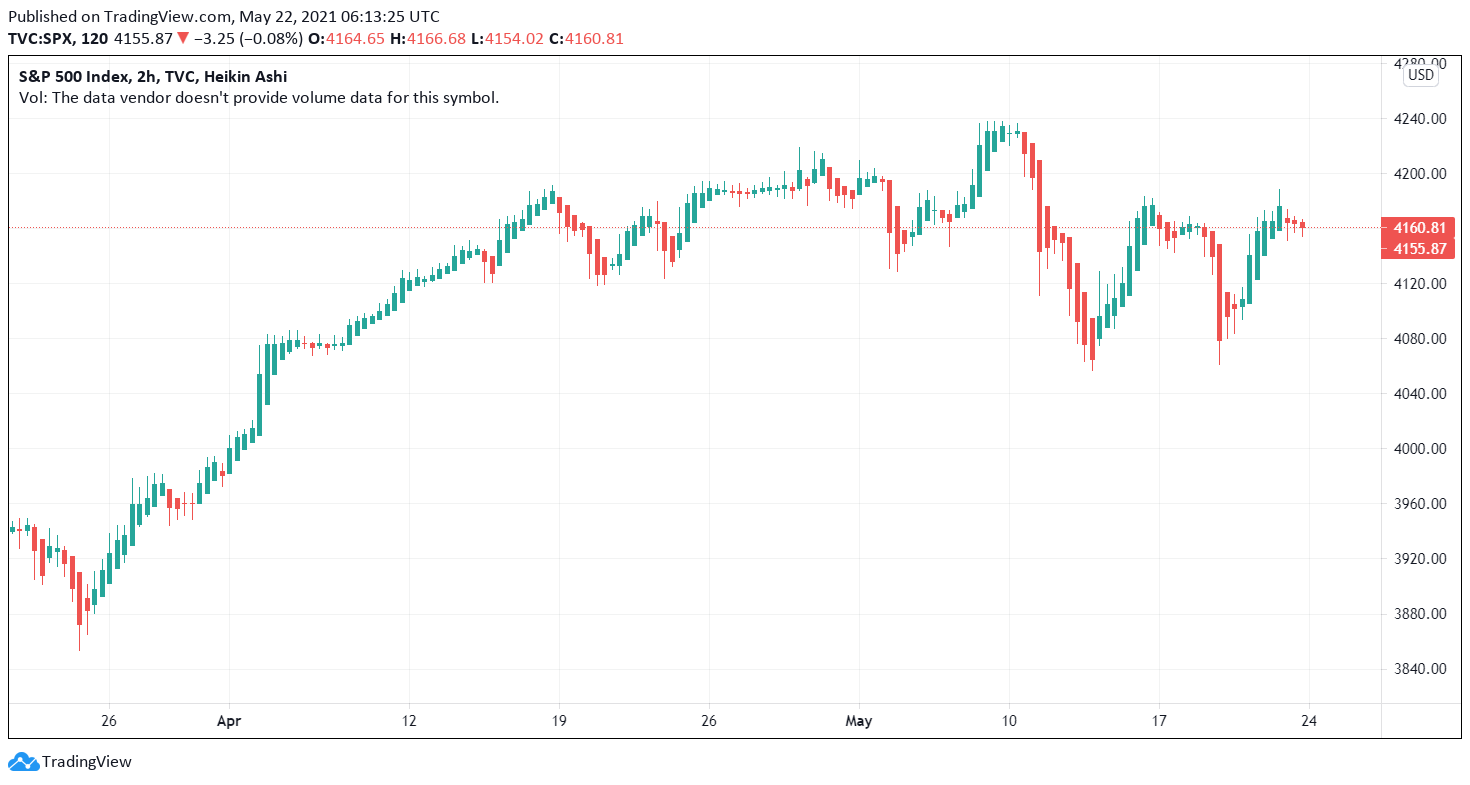Stocks on wall street ended mostly lower on Friday, weighed down by technology and consumer discretionary shares, while the dollar edged higher after stronger-than-expected US manufacturing data.
US Treasury yields slipped as the market mostly shrugged off the data.
Data firm IHS Markit said its flash U.S. manufacturing PMI increased to 61.5 in the first half of this month. That was the highest reading since October 2009, and followed a final reading of 60.5 in April. Economists polled by Reuters had forecast the index dipping to 60.2 in early May.
Rising US inflationary risks have spooked activity on wall street, and minutes on Wednesday from the last Federal Reserve meeting suggested some policymakers were ready to talk about reducing stimulus by tapering bond purchases.
On Friday, Philadelphia Fed Bank President Patrick Harker said Fed officials should start talking about the best way to reduce their asset purchases ”sooner rather than later.”
But not all data has suggested the economy may be at risk of overheating.
Also, rising COVID-19 cases globally remain a concern. Official tolls showing the number of deaths directly or indirectly attributed to the pandemic are likely to be a ”significant undercount,” the World Health Organization said on Friday, saying 6 to 8 million people may have died so far.
”Institutional investors took a lot of money out due to inflation fears but that money will start flowing into tech stocks as those fears moderate,” said Thomas Hayes, chairman and managing member at hedge fund Great Hill Capital LLC.
The S&P tech index closed down 0.5%, while the consumer discretionary index fell 0.6% during wall street trading hours on Friday.

The Dow Jones Industrial Average rose 123.69 points, or 0.36%, to 34,207.84, the S&P 500 lost 3.26 points, or 0.08%, to 4,155.86 and the Nasdaq Composite dropped 64.75 points, or 0.48%, to 13,470.99 during trading hours on wall street.
In the euro zone, the IHS Markit’s flash Composite Purchasing Managers’ Index, seen as a good guide to economic health, climbed to 56.9 in May, its highest level since February 2018, from April’s final reading of 53.8.
British retail sales surged 9.2% on the month in April, twice the average forecast in a Reuters poll of economists, and the UK Composite Purchasing Managers’ Index hit a record high at 62.0.
Sterling was last trading at $1.4144, down 0.02% on the day.
The dollar index rose 0.27%, with the euro down 0.38% to $1.2179.
Crpto Crash Effect Felt on Wall Street
In the cryptocurrency market, bitcoin slid after China doubled down on its efforts to prevent speculative and financial risks by cracking down on the mining and trading of the world’s largest and most popular cryptocurrency.
Bitcoin traded down 11.5% to 35,952.05 affecting companies such as Coinbase global on wall street.

Benchmark 10-year notes last rose 3/32 in price to yield 1.6233% on wall street, from 1.634% late on Thursday.
Oil prices jumped 2% after three days of losses, with investors watching a storm that is forming over the western Gulf of Mexico. Brent crude futures rose to settle at $66.44 a barrel, while U.S. West Texas Intermediate settled at $63.58.
Spot gold added 0.2% to $1,880.30 an ounce.
 GME
GME AMC
AMC